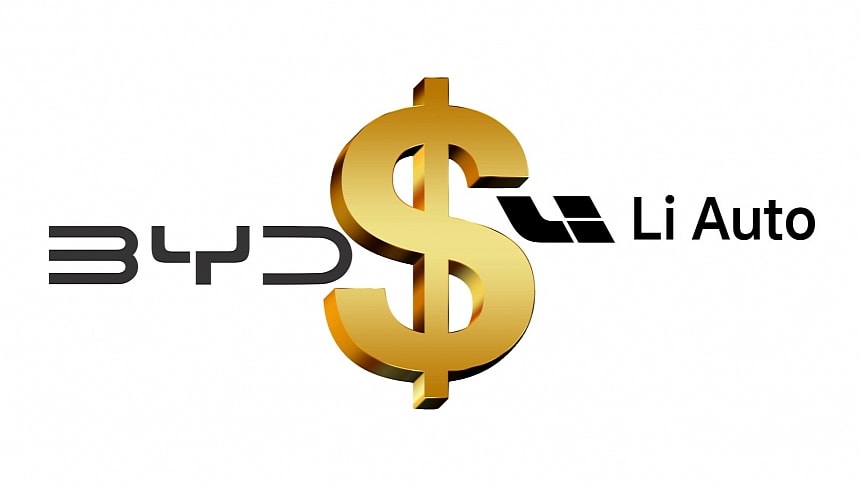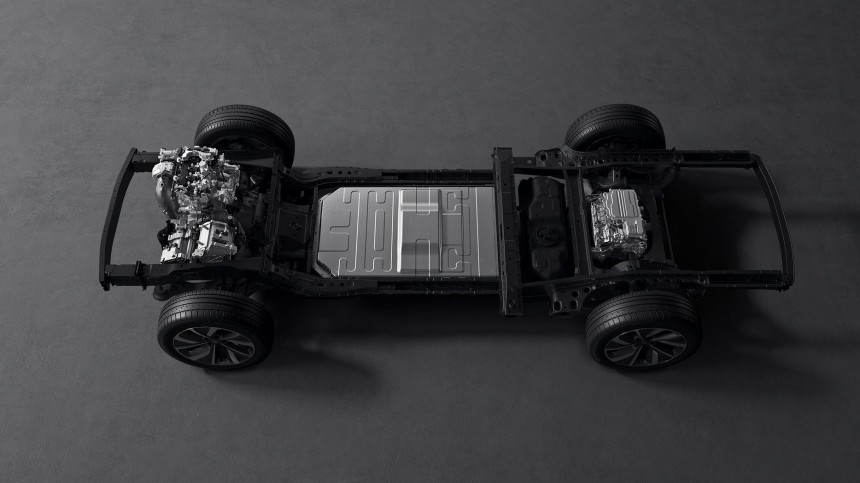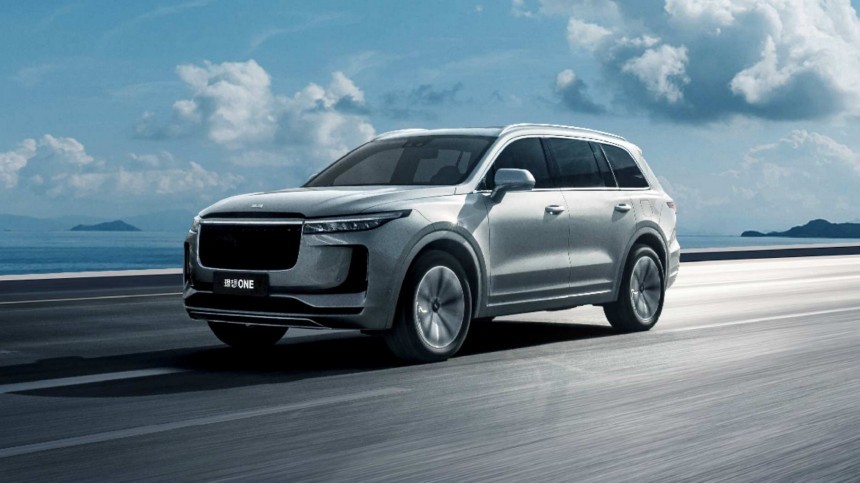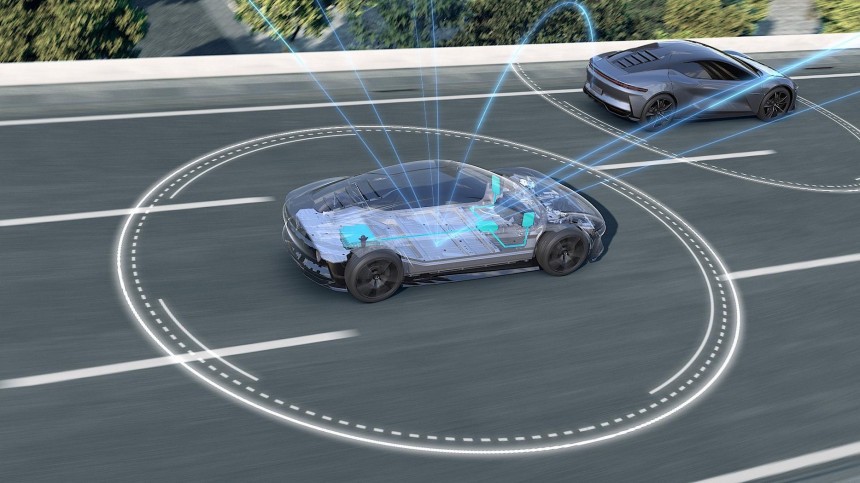Fossil fuels will not last forever. The certainty that their days are numbered confirms that the internal combustion engine (ICE) is also destined to disappear. The solution for that would be battery electric vehicles (BEVs), and China is supposed to be the best example of how they will replace ICE cars. The country refines most raw materials for batteries and sells its new energy vehicles (NEVS) at affordable prices, which took their market share above 30% in the first half of 2024. The future is bright, right? Not so fast, BEV advocates: things are not going that smoothly in the land of electric cars.
At the seventh edition of the Rongzhong Limited Partner Summit on July 9, Song Liping, president of the China Association for Public Companies (CAPCO), discussed NEV makers in his speech. The executive mentioned that only BYD and Li Auto make money selling these cars. All other companies that sell only this sort of product are losing cash, while legacy automakers can pay the bills by selling ICE vehicles.
Considering we are talking about public companies, that's no secret: they have to disclose their financial results. Believing them is another story. NIO is one of the companies losing more money on BEVs and it made that situation even worse: it is trying to promote a battery-swapping standard that even its own vehicles fail to follow. Anyway, knowing that only two Chinese companies found a way to sell NEVs at a profit raises serious doubts about the electrification shift and what China is doing to have more than 30% of NEVs in its home market. Whatever it is, it is artificially inflating their market share.
Why are these companies losing money? Because they sell their vehicles below what they should be priced to cover all costs involved apart from production. In other words, they are paying to move metal instead of earning money to do so. Why would anyone sell a product below its correct value? A profitable and powerful company would do so to "buy market share." A startup may do that to convince investors it is worth their money on promises that its products will win customers when this or that strategic goal is achieved. It is a strange logic, but it has worked before.
BYD makes its own cells, while Li Auto has only recently started selling a BEV model, the Li Mega MPV. All its other models are extended-range electric vehicles (EREVs), which BYD also sells. This could be the explanation for their profitability, as EREVs have smaller battery packs and are, therefore, much cheaper than the ones BEVs have to use.
Several market analysts have said that BEVs should have smaller battery packs and a wide network of fast chargers to make sense. What these guys failed to understand is that this would make these vehicles unfit for road trips. Besides, constantly fast charging a car will reduce the lifespan of its battery pack. That's a fact with current lithium-ion cells. All new technologies claiming that this will not be a problem for them have yet to do the most basic thing about these allegations: prove them.
Meanwhile, everybody who knows that a small battery pack will not work is fitting large and incredibly expensive components into their cars. Liping made it evident that they sell these cars at a loss so that they can be minimally competitive. Yet, most of these businesses are still open, which is even more illogical. Who is paying to keep them running? Customers, either as taxpayers or investors. And who is making them pay for that? In the first case, governments. Investors just put their money where they think it will get a good return, even if the numbers tell them otherwise. Again, they believe in the promises, not the facts. Whatever can turn them into millionaires or even richer folks, right?
Generally, governments are pushing for BEVs because of climate change concerns. The more pragmatic ones know it has more to do with public health than carbon emissions, as I have explained more than once. Sadly, even these governments fail to understand that most of the production of lithium-ion batteries and the raw materials processing they need happen in China. In other words, pushing automakers to sell these cars is like demanding they buy the most important components from a country not exactly known for its democratic or fair play values. Just ask Taiwan and Hong Kong about that.
In part, this is why I asked months ago if the BEV push was caused by climate change worries or by China. It may be the case that China seized these concerns to ensure a strategic asset for itself, but what if it is even more active than that? Knowing that even in the world's largest car market – where 90% of all raw materials for lithium-ion batteries are refined – BEV makers fail to sell these cars at a profit makes you wonder even more about who will benefit from their dominance. As I have written more than once, it will not be customers.
They are getting extremely heavy cars with expensive components that will eventually need replacing at $30,000 a pop. Sure, they may last ten years or more, but we have ICE vehicles that still run after 100 years, some even more than that. This is perfectly possible with BEVs, but will it make financial sense to keep them running? When they can no longer run, will we just recycle them, or will we mine even more metals to build new cars and batteries?
Call me a cynic, but I don't buy the excuse that we need BEVs because we are worried about the planet or our survival on its surface, especially when only two companies can pay their bills selling them.
Considering we are talking about public companies, that's no secret: they have to disclose their financial results. Believing them is another story. NIO is one of the companies losing more money on BEVs and it made that situation even worse: it is trying to promote a battery-swapping standard that even its own vehicles fail to follow. Anyway, knowing that only two Chinese companies found a way to sell NEVs at a profit raises serious doubts about the electrification shift and what China is doing to have more than 30% of NEVs in its home market. Whatever it is, it is artificially inflating their market share.
BYD makes its own cells, while Li Auto has only recently started selling a BEV model, the Li Mega MPV. All its other models are extended-range electric vehicles (EREVs), which BYD also sells. This could be the explanation for their profitability, as EREVs have smaller battery packs and are, therefore, much cheaper than the ones BEVs have to use.
Several market analysts have said that BEVs should have smaller battery packs and a wide network of fast chargers to make sense. What these guys failed to understand is that this would make these vehicles unfit for road trips. Besides, constantly fast charging a car will reduce the lifespan of its battery pack. That's a fact with current lithium-ion cells. All new technologies claiming that this will not be a problem for them have yet to do the most basic thing about these allegations: prove them.
Generally, governments are pushing for BEVs because of climate change concerns. The more pragmatic ones know it has more to do with public health than carbon emissions, as I have explained more than once. Sadly, even these governments fail to understand that most of the production of lithium-ion batteries and the raw materials processing they need happen in China. In other words, pushing automakers to sell these cars is like demanding they buy the most important components from a country not exactly known for its democratic or fair play values. Just ask Taiwan and Hong Kong about that.
In part, this is why I asked months ago if the BEV push was caused by climate change worries or by China. It may be the case that China seized these concerns to ensure a strategic asset for itself, but what if it is even more active than that? Knowing that even in the world's largest car market – where 90% of all raw materials for lithium-ion batteries are refined – BEV makers fail to sell these cars at a profit makes you wonder even more about who will benefit from their dominance. As I have written more than once, it will not be customers.
Call me a cynic, but I don't buy the excuse that we need BEVs because we are worried about the planet or our survival on its surface, especially when only two companies can pay their bills selling them.


















































